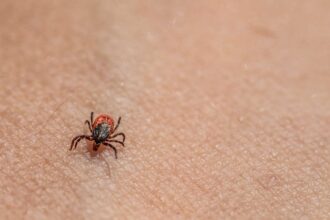The skin acts as a protective barrier that limits the infiltration of particles and safeguards against external hazards. Recent studies have shown that small particles laden with substances that promote hair growth can bypass this barrier to reach the hair follicles. Research conducted by the University of Tsukuba revealed that the topical use of a gel made from water-soluble oxidized keratin (referred to as keratin microsphere gel) on mice significantly boosted cell proliferation and increased the expression of genes linked to hair growth within the papilla cells of hair follicles, thus encouraging hair growth.
Upon applying the keratin microsphere gel, which is water-based, to the shaved areas on the backs of mice, hair began to regrow from the second day after application, and the speed of hair growth increased over time. This outcome was comparable to that observed with minoxidil, a well-known hair growth enhancer. Additionally, genetic analysis of tissue samples from the dorsal skin of the mice showed a significant increase in the expression of genes that play a role in regulating the hair cycle and maintaining skin balance. Furthermore, a skin model was created to assess the effect of keratin microspheres on papilla cells. This model consisted of a co-culture with an epidermal layer derived from human cells on top and primary human papilla cells underneath. The gene expression analysis in this model confirmed the stimulating effects of keratin microspheres on papilla cells, showcasing the gel’s ability to penetrate through the skin.
This research not only unveils the potential of keratin microsphere gel to promote hair growth but also underscores its safety and productivity. Given that keratin is a vital component of both hair and skin, its use as a hair growth stimulant is expected to be both safe and effective, with minimal risk of adverse side effects.
More information: Meriem Bejaoui et al, Keratin Microspheres as Promising Tool for Targeting Follicular Growth, ACS Applied Bio Materials. DOI: 10.1021/acsabm.3c00956
Journal information: ACS Applied Bio Materials Provided by University of Tsukuba








